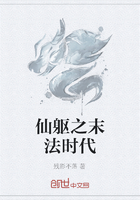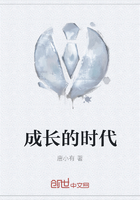"I'm a civilian," protested the administrator. "If I told him he was going to the dogs he'd tell me to go to the devil. No, one of you army men must do it. He'll listen to you."Young Captain Haldane of the cavalry was at the table; he was visiting Panama on leave as a tourist. The chief turned to him.
"Haldane's the man," he said. "You're his friend and you're his junior in rank, so what you say won't sound official. Tell him people are talking; tell him it won't be long before they'll be talking in Washington. Scare him!"The captain of cavalry smiled dubiously.
"Aintree's a hard man to scare," he said. "But if it's as bad as you all seem to think, I'll risk it. But, why is it," he complained, "that whenever a man has to be told anything particularly unpleasant they always pick on his best friend to tell him? It makes them both miserable. Why not let his bitterest enemy try it? The enemy at least would have a fine time.""Because," said the chief, "Aintree hasn't an enemy in the world-except Aintree."
The next morning, as he had promised, Haldane called upon his friend. When he arrived at Las Palmas, although the morning was well advanced toward noon, he found Aintree still under his mosquito bars and awake only to command a drink. The situation furnished Haldane with his text. He expressed his opinion of any individual, friend or no friend, officer or civilian, who on the Zone, where all men begin work at sunrise, could be found at noon still in his pajamas and preparing to face the duties of the day on an absinth cocktail. He said further that since he had arrived on the isthmus he had heard only of Aintree's misconduct, that soon the War Department would hear of it, that Aintree would lose his commission, would break the backbone of a splendid career.
"It's a friend talking," continued Haldane, "and you know it! It's because I am your friend that I've risked losing your friendship!
And, whether you like it or not, it's the truth. You're going down-hill, going fast, going like a motor-bus running away, and unless you put on the brakes you'll smash!"Aintree was not even annoyed.
"That's good advice for the right man," he granted, "but why waste it on me? I can do things other men can't. I can stop drinking this minute, and it will mean so little to me that I won't know I've stopped.""Then stop," said Haldane.
"Why?" demanded Aintree. "I like it. Why should I stop anything I like? Because a lot of old women are gossiping? Because old men who can't drink green mint without dancing turkey-trots think I'm going to the devil because I can drink whiskey? I'm not afraid of whiskey," he laughed tolerantly. "It amuses me, that's all it does to me; it amuses me." He pulled back the coat of his pajamas and showed his giant chest and shoulder. With his fist he struck his bare flesh and it glowed instantly a healthy, splendid pink.
"See that!" commanded Aintree. "If there's a man on the isthmus in any better physical shape than I am, I'll--" He interrupted himself to begin again eagerly. "I'll make you a sporting proposition,"he announced "I'll fight any man on the isthmus ten rounds--no matter who he is, a wop laborer, shovel man, Barbadian nigger, marine, anybody--and if he can knock me out I'll stop drinking. You see," he explained patiently, "I'm no mollycoddle or jelly-fish. I can afford a headache. And besides, it's my own head. If I don't give anybody else a headache, I don't see that it's anybody else's damned business.""But you do," retorted Haldane steadily. "You're giving your own men worse than a headache, you're setting them a rotten example, you're giving the Thirty-third a bad name-"Aintree vaulted off his cot and shook his fist at his friend.
"You can't say that to me," he cried.
"I do say it," protested Haldane. "When you were in Manila your men were models; here they're unshaven, sloppy, undisciplined.
They look like bell-hops. And it's your fault. And everybody thinks so."Slowly and carefully Aintree snapped his fingers.
"And you can tell everybody, from me," he cried, "that's all I care what they think! And now," he continued, smiling hospitably, "let me congratulate you on your success as a missionary, and, to show you there's not a trace of hard feeling, we will have a drink."Informally Haldane reported back to the commission, and the wife of one of them must have talked, for it was soon known that a brother officer had appealed to Aintree to reform, and Aintree had refused to listen.
When she heard this, Grace Carter, the wife of Major Carter, one of the surgeons at the Ancon Hospital, was greatly perturbed.
Aintree was engaged to be married to Helen Scott, who was her best friend and who was arriving by the next steamer to spend the winter. When she had Helen safely under her roof, Mrs. Carter had planned to marry off the young couple out of hand on the isthmus.
But she had begun to wonder if it would not be better they should delay, or best that they should never marry.















